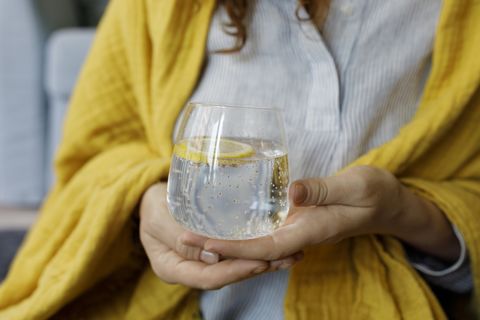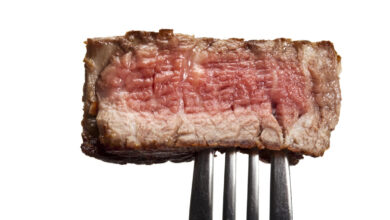Definitive guide on the amount of water you should drink a day

Women’s bodies are about a 45%-65% waterwith H2O playing a huge role in health, from our internal organs to our bones and skin.
Additionally, water is vital for regulating body temperature, cell function, and waste removal. Because we expel water through sweating, breathing, and urination, it’s important to stay hydrated, especially on hot days and during exercise.
But, for something as simple as “getting a drink of water,” there are several things you need to consider, and not just the quantity and quality of what you’re drinking.
How many liters of water should I drink a day?
But how much water should we really drink? Dr. Joshua Berkowitz, founder of IVBoost Clinicrecommends drinking at least two liters, but also listening to your body.
“Adults should drink at least 2 liters (8 glasses) a day, and up to 3 liters when the weather is hot and our body has to regulate the temperature. But various factors such as diet, climate, exercise levels and health status can affect how much water and fluids we need to drink each day.”
Does this include sparkling water?
the guide of nhs says that low-fat milk and unsweetened beverages, such as tea or coffee, count toward your daily recommended fluid intake. Sparkling water is included in this as it is just as hydrating as still water, however not all sparkling water is created equal. BAN Registered Nutritionist Eva Humphries explains that drinking sparkling water isn’t always the healthiest option.
“Some natural sparkling mineral waters can be useful for rehydration, as the minerals within them can act as electrolytes. Electrolytes are helpful minerals that are crucial for fluid balance. At the other end of the spectrum, highly carbonated water can cause gas and bloating in susceptible individuals,” says Eva.
What happens if I don’t drink enough water?
Not drinking enough water leads to dehydration, which we all know about, but some people may be confused as to what it really is. Dr. Berkowitz explains that acute dehydration, from prolonged physical activity or exposure to heat, can be cured with rest and rehydration, but dehydration can have serious effects.
“Dehydration can have a huge impact on our health and organs. Signs of dehydration include: excessive thirst, strong colored dark urine, muscle fatigue, dizziness and lightheadedness, dry mouth, lips and eyes, urinating less than four times a day or fatigue“, he says. In extreme cases, dehydration can lead to seizures, kidney failure or brain swelling.
Can you drink too much water?
With water being dubbed the healthiest beverage for its purity, it’s easy to think you can never have too much. However, being overhydrated can also have dire consequences, including swelling of the brain.
“In addition to constantly needing the toilet, drinking excessive amounts of water, beyond what the body needs to function properly, can lead to electrolyte depletion. Over prolonged periods, it can dilute the amount of sodium in the blood, impair kidney function and cause swelling of the cells,” says Dr. Berkowitz, as the kidneys can only remove 0.8 to 1 liter of water per hour. . He recommends going to his doctor if he has prolonged unquenchable thirst to make sure there isn’t an underlying condition.
Professor Courtney Kipps, sports and exercise medicine consultantemphasizes that overhydration can be a “medical emergency” in some cases.
“There is a potential risk of what is called ‘hyponatremia,’ which means low sodium concentration as a result of excess fluid diluting blood sodium levels.. It has been seen in athletes who have had too much to drink during exercise and in people who have taken illegal drugs that have made them very thirsty,” he explains.
When should I drink water?
Believe it or not, there are ways to time your water intake for the best effect.
“I generally tend to advise my nutrition clients to have a glass of water first thing in the morning and drink water regularly throughout the day. Studies indicate that drinking a little water first thing in the morning can increase brain function and improve energy.no There are specific times that are described as the best times to drink water, but finding a pattern that works for you is the most important thing you can do says Eve.
For people who particularly struggle with drinking enough water, Eva recommends “carrying a water bottle as a visual cue. Paying attention to the color of your urine or the absence of urination can also be a good signal to drink water.”
On top of this, Professor Kipps points out that water is still probably the healthiest alternative to other beverages. “Sports drinks have similar risks to water and are not ‘better than water,’ aside from their carbohydrates, which may be helpful after prolonged exercise.”says.




